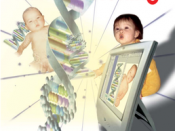According to the Bible, the creation of our universe and all organisms within occurred during a span of seven days, when ÃÂthe Lord God formed man from the dust of the ground and breathed into his nostrils the breath of life; and man became a living soul. The Lord God then took one of his ribs and closed up his flesh instead thereof: and with the rib from which the Lord God had taken from man He created womanÃÂ (Genesis 2:7). For thousands of years, this belief had continued to provide a fundamental foundation for many religious sects, and no educational doctrine or scientific evidence had yet to provide another means by which life forms could be created. However, on July 5th, 1996, the first animal to be successfully cloned, a baby lamb, was brought into the world by two Scottish genetic engineers (Beardsley). Many questioned what it meant to have an individual other than a supreme being possess the capability to breathe the life into another, as well as the moral consequences and permissibility of such a power.
Many individuals claim the acceptance of cloning would be to recognize supreme control over human existence, and would rapidly transform the parent into the creator, stepping into the role of God as the architect of human life. Although the process of cloning could easily transform into a safe procedure over time, the argument at the forefront of cloning revolves around the numerous psychological detriments many feel would be inflicted upon the cloned child, including a diminished sense of self worth, a unique but ultimately damaging love from parents, and a substantial pressure to fulfill a predestined role, resulting in an overall negative impact on family structure. However, to propose an opinion regarding the permissibility of cloning, one must analyze the ethical...


